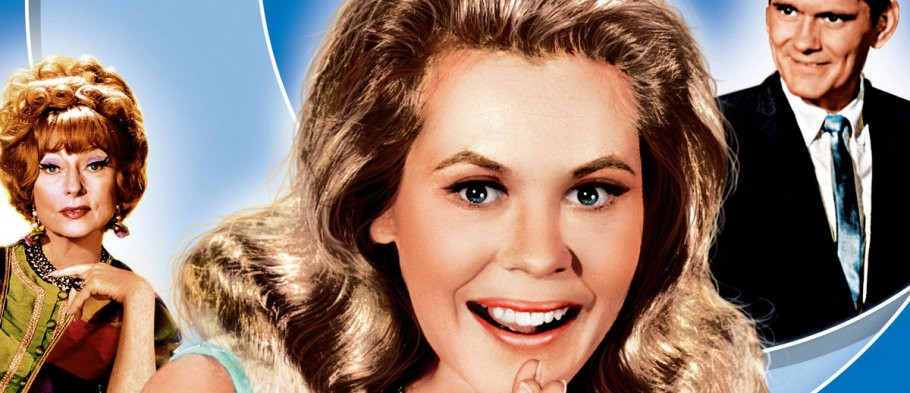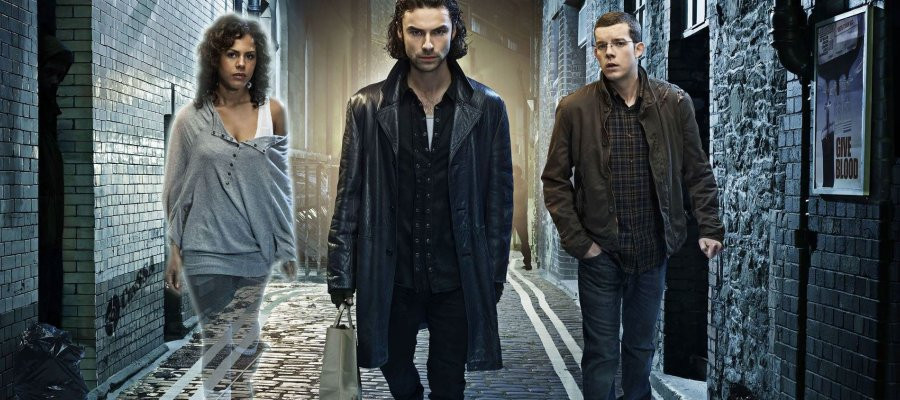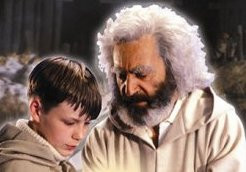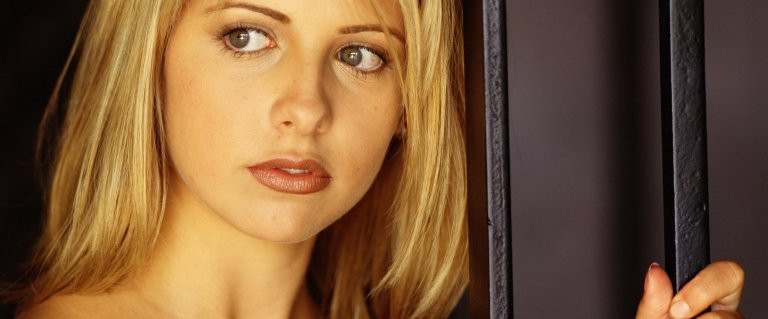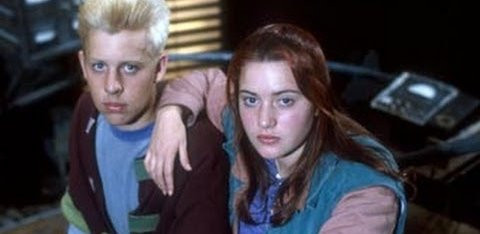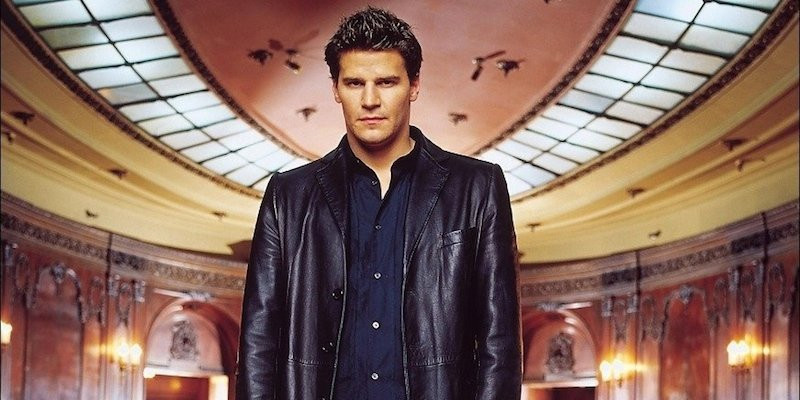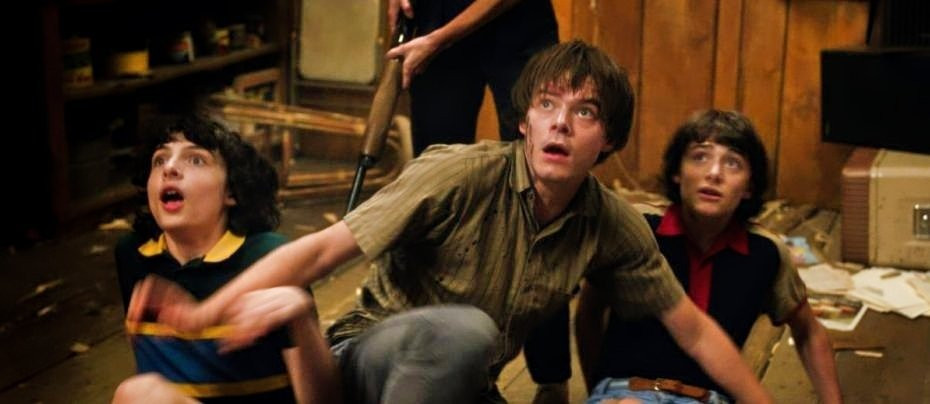
Stranger Things - Season 4
Stranger Things review by John Winterson Richards
This brief overview of Season Four of Stranger Things is intended to be spoiler light but it is not entirely spoiler free. Our recommendation is that you watch it first - because it is worth the watching - but first make sure you are familiar with the previous seasons.
This is the season most likely to be remembered for reviving the career of Kate Bush. The Eighties singer's music plays a pivotal role in the Eighties set drama. It is an integral part of the plot, not just there for atmosphere. The Duffer Brothers seem to monitor the cultural impact of their work very closely and adapt it accordingly. While the Eighties music has always been part of the appeal of Stranger Things, it was usually confined to the background. Then an impromptu performance of the theme song from The Neverending Story towards the end of Season Three caught the public imagination and attracted a lot of attention online. The Duffers evidently noticed and decided to put the period music more in the foreground.
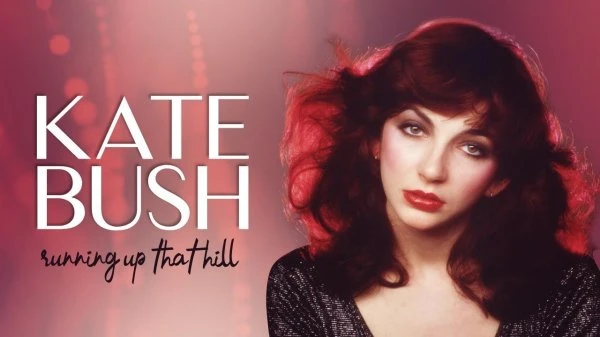
So there is an amusing replay of The Neverending Story, the show having reached the point where it can even reference itself. More importantly, music, in accordance with an old folklore tradition, is portrayed as a tangible force for good in the main storyline. This culminates in a powerful sequence in which Max (Sadie Sink) is literally running for her life with her favourite track, Running Up That Hill, pounding in her ears.
This scene really struck a chord, so to speak. Running Up That Hill became a huge download on Spotify. It also reached Number One in the UK Singles Chart, which it had not done on its first release almost forty years previously. Bush also broke the record for the longest gap in topping that chart, her previous Number One having been Wuthering Heights in 1978.
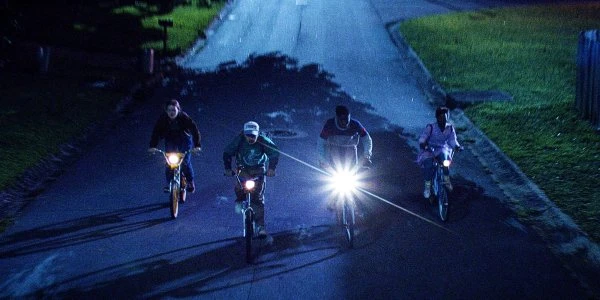
The huge publicity generated by this achievement was good advertising for the show, but it does rather overshadow another achievement - for this is overall arguably the best season of Stranger Things to date.
As the show's young protagonists are growing up and attaining maturity, so is the show itself. The Duffer Brothers themselves seem to have grown into their roles as "showrunners." They know what works, and they build on it, while responding positively to constructive criticism. Other "showrunners" could learn from their approach: engaging with customers is not a sign of weakness. The tone of the show becomes more adult, both in the sense of addressing topics that are often described as "adult," such as sex and drug abuse, and in the sense of being aimed at a more adult viewer. This is definitely not a children's show, if it ever was.
Season Four is much darker than previous seasons. There are scenes that are positively frightening. Sympathetic characters die, sometimes quite horribly. The ugly spectre of mob rule is raised. So is the issue of the abuse of State power. Even more terrifying is when we delve into the world of dreams and the subconscious, where we are all at our most vulnerable and from which there is no escape. As in previous seasons, it is shown that events have consequences and no one, especially children, can expect to come through traumatic experiences unchanged, but in this season guilt becomes a particular issue.
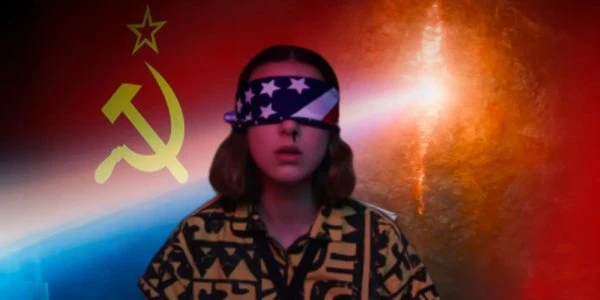
There is something of a religious subtext to this season. The symbolism of an abandoned Church in Russia being used as a smuggler's warehouse is not subtle, but it actually becomes a place of hope. By contrast, a full Church in the United States shows how faith can be a comfort in crisis but can also be perverted. The various characters are shown as having a range of different beliefs and at least some appear to be evolving. This is a topic that should be explored more in the horror, fantasy, and science fiction genres: how do extraordinary and unexpected events impact on fixed belief systems, whether conventional religion or strict materialism? Indeed, how can any human being not be forced to reflect when the apparently "supernatural" challenges their basic assumptions about reality? Even if there may be scientific explanations for some of it, one must surely wonder afterwards what else might be out there.
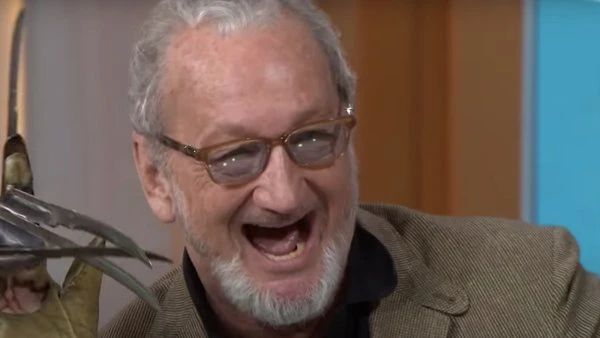
The references to Eighties culture remain a constant joy. Once again, Sam Raimi's The Evil Dead is a major influence, as are The Amityville Horror, the 'Halloween' films, and, from a slightly earlier time, The Exorcist. It is a typical Stranger Things in-joke to have Robert Englund - Freddy Krueger from Nightmare on Elm Street - as a particularly appropriate guest star. There is a very heavy handed Carrie sequence - which, happily, is not allowed to go too far, since bullying Eleven (Millie Bobby Brown) is really not a good idea. There is a scene copied directly from Star Wars and another straight out of Conan the Barbarian, right down to the sword.
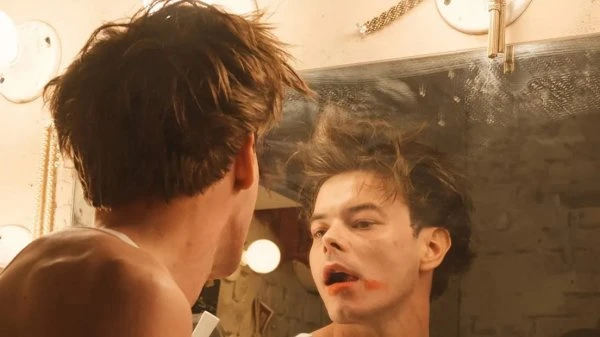
An attempt to satirise the "stoner" comedies that began to develop in the Eighties is, however, misjudged. The new comedy relief character of Argyle (Eduardo Franco) is indeed very amusing but totally out of place. It is also inconsistent that Jonathan (Charlie Heaton), previously a serious, quietly aspirational character, has suddenly and inexplicably become something of a loser again. It should also be noted that one should not judge the attitudes of Eighties teenagers towards sex and drugs by 21st Century standards: there were definitely things happening at that point but what is now portrayed as normal was by no means as prevalent back then. Again it should be noted that the Duffers are satirising the cultural image of the Eighties, which is not quite the same as the reality of the decade for most people.
The Duffers continue to add to a large regular cast that was already quite unwieldy. They are reluctant butchers - understandably, because their characters are so likeable - and even keep bringing those they do kill back from the dead (poor Barb from Season One and Bob from Season Two excepted). Their failure to find good pretexts for these frequent resurrections is actually quite irritating. Indeed they are barely trying. One significant character comes back with what is in effect little more than "Aha! So you thought I was killed? Well, I wasn't. Anyway, let's get on with this..."
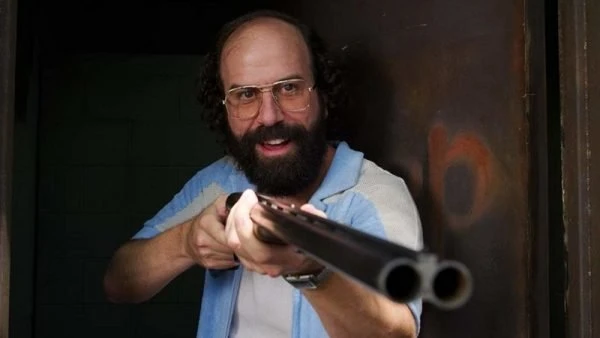
As a result, there are too many characters for a single story, so the Season is broken down into three separate plotlines with different groups. Joyce (Winona Ryder) gets a mysterious message that Jim (David Harbour) is still alive and goes off to look for him with Murray (Brett Gelman). In her absence, Eleven, who has been struggling with her relocation to California with Joyce's family, becomes the object of dirty doings within the US Government. Jonathan and his friend Argyle, Mike (Finn Wolfhard), and Will (Noah Schnapp) get roped in but are rather obviously surplus to requirements. Meanwhile, back in their old home town of Hawkins, Indiana, what appears at first to be a standard Eighties style horror movie plot involving the rest of the characters is set in motion when teenagers are killed in spectacularly nasty fashion.
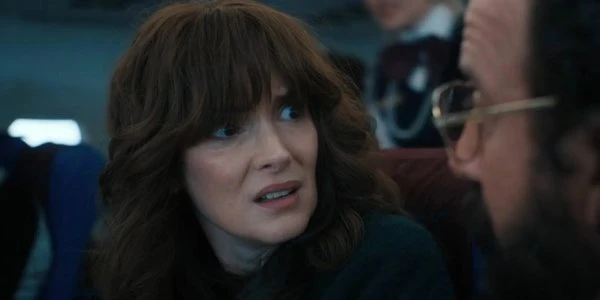
The last of these threads is by far the strongest: although the show as a whole is sometimes a satire of Eighties culture, the Season Four Hawkins storyline is played fairly straight and could actually be what it is satirising, a classic horror story. By contrast, Joyce and Murray make a fun double act, providing a welcome slice of light relief so long as it is understood that their thread is not meant to be taken too seriously. Eleven's thread is the weakest. Having been "overpowered," in the gaming sense, in previous seasons, she has now lost much of her agency along with her powers. For a long time she seems to be regressing as a character, returning to Season One in some respects, an impression heightened by extensive use of "flash back." However, there is a satisfying pay off to all this that links in to what is happening in Hawkins, even if the three threads are not sewn together as neatly as they might have been.
Given the size of the cast, and the fact that this is meant to be a brief overview, it would be tedious to go through what happens to every character, not to mention unnecessary. Suffice it to say that the general standard of the acting remains high - except ...how does one put this nicely? Well, it is a general truth that some child actors mature better than others and 'Stranger Things' provides a lot of evidence of this. To state it in positive terms, those who have matured best are Millie Bobby Brown as Eleven, Sadie Sink as Max, and Gaten Matarazzo as Dusty. Brown is once again astonishing but it may be Sink who wins this season, with a little help from Kate Bush.
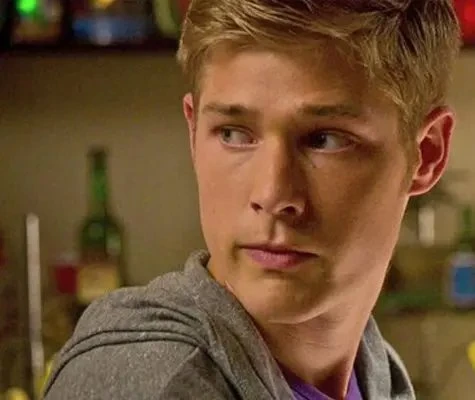
There are also strong performances among the new cast members. Joseph Quinn excels in showing us many the many different facets of a well constructed character who is simultaneously an outgoing drug dealer and an insecure, vulnerable young man. We can understand why others are suspicious of him, but our sympathy for him begins to grow until he ultimately becomes something of the hero of his own 'Dungeons & Dragons' games. Mason Dye is a convincing leader figure as the new "King of Hawkins High," and also a lesson on how influence over others can become toxic. Jamie Campbell Bower judges his role carefully as a character who turns out to be pivotal. Nikola Duricko and Tom Wlaschiha are entertaining as a pair of Russian chancers.
The pacing is not perfect. Several episodes run long and the last is the length of a substantial feature film. Some of the emotional, often rather "on the nose" emotional speeches could have been shortened without loss, as could some of the extended action scenes, which can get a little confusing. Unlike previous seasons, Season Four ends with a "cliffhanger" not a resolution. While this sets up the fifth and final season, it is also a bit frustrating because it is not what we have come to expect of the show.
Yet these imperfections do not alter the basic fact that Season Four was a success on every level. This obviously increases the pressure on the Duffers for the final season. One can only hope this will not be another on the growing list of potentially great shows ruined at the end by becoming untrue to itself.
Published on July 8th, 2022. Written by John Winterson Richards for Television Heaven.


